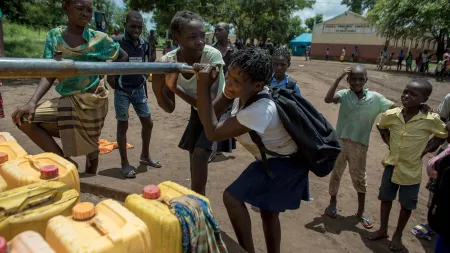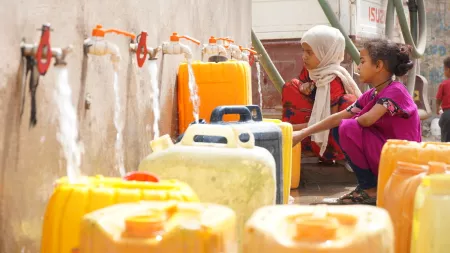How water, sanitation, and hygiene are affected in crisis
During and after emergencies, people are at significant risk of contracting infectious disease caused by inadequate sanitation, poor hygiene practice and lack of access to safe water. Even when there is no emergency, lack of access to safe water and sanitation is the world’s single largest cause of illness.
Provision of an integrated Water, Sanitation, and Hygiene (WASH) package is fundamental to maintaining the safety and dignity of displaced people, particularly women and girls, through providing secure bathing spaces, hygiene supplies, private and dignified toilets, and safe access to water sources.
WASH in emergencies normally includes a range of interventions:
-
Providing safe water through water trucking
-
On-site water treatment and distribution
-
Household water treatment and storage
-
Construction of latrines and bathing spaces
-
Hygiene promotion through trained volunteers
-
Distribution of essential hygiene supplies.
Provision of water and sanitation facilities, or hygiene kits, alone is not enough—if people lack knowledge or understanding of how to prevent water- and sanitation-related disease, then disease outbreak is likely to occur. Wherever possible, our emergency interventions aim to build longer-term sustainable solutions together with the community.


